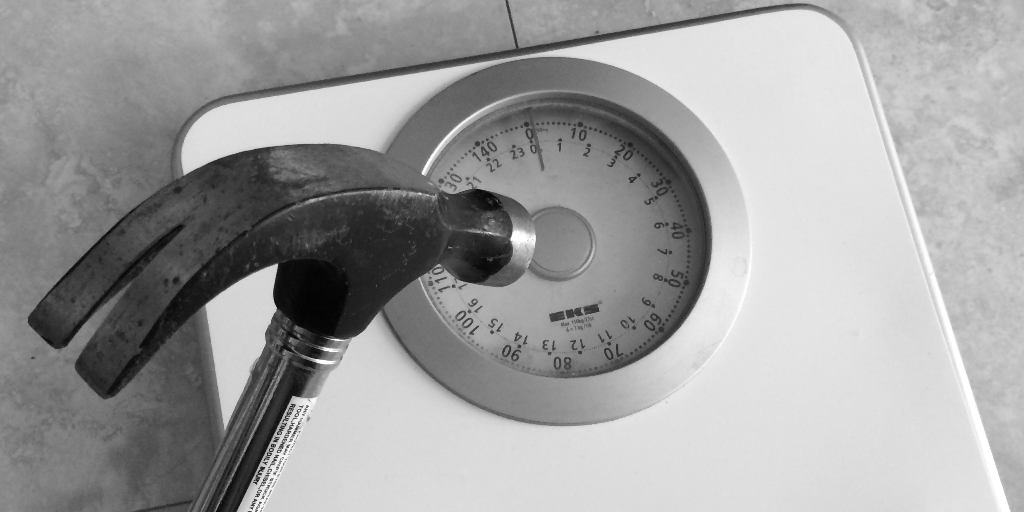The wake of the boat are the waves it leaves behind, as it pushes the water out of its way.
You might be sat on a beach and suddenly 4 or 5 waves seem to come from nowhere, crashing onto the shore.
That’s because the waves that the boat leaves behind continue to travel long after the boat has passed, spreading wider and wider, disturbing water that can be miles away from where the boat traveled.
For a while now I’ve been thinking about the idea that people leave a wake behind them.
A wake that affects other people, far beyond them, in ways you can’t imagine.
Then one Sunday morning a couple of weekends ago, something happened to me that cemented my belief in this idea and its disturbing effects on us.
Before I tell you what happened…
My Theory: Without realising it, even the briefest encounter you have with another person has an effect on both of you, which in turn has an effect on the people you both go on to encounter afterwards and so forth.
The effect of a person’s wake is on our feelings, which take place in the part of the brain that is responsible for making most of our day to day decisions.
A person’s wake can be positive (having a positive effect on others) or negative (with the corresponding negative effect).
What dictates whether the wake of a person is positive or negative at any given time is the mood that the person is in.
(Your mood is the instantaneous measure of how you feel – in particular how much you feel like you’re getting what you want, or how well you feel things are going your way)
So you can think of any group of people, such as a household, a classroom, a community, a company, a country or even our society as a whole, as a set pin balls all bouncing round in a box together.
At any one time, some pin balls are negative and some positive to different degrees.
And as they glance off each other or collide heavily together (interacting), the pin balls (people) are continually altering each others’ positive or negative states (moods).
Now back to my story…
I first thought about this human wake effect when I noticed very few people looked at me, smiled or said hello when out for a run one particular morning.
I thought quite a bit about why so few people would be happy or friendly enough to say hello, especially when we’re all out for some morning exercise you would imagine that would create some sort of friendly ice-breaking bond.
Apparently not. Something stronger was at play.
So I began paying more attention to my own and other people’s reactions as I passed them on the street, whether it be out for a walk, run or bike ride. Here are the patterns I’ve observed:
1. Whenever someone smiles at me, I automatically smile back. Their positive wake causes a positive reaction in me.
2. My smile usually continues after I’ve passed them, in other words my positive reaction is genuine.
When someone smiles and adds a hello or good morning, I reflect back an equally friendly greeting and my smile will continue for even longer after we’d passed. I noticed on at least 2 occasions when someone made a friendly passing joke, it put me in a good mood for quite a while after.
3. Therefore, the more genuine and friendly the greeting, the longer I felt the positive after-effects.
4. Anyone passing me shortly after a friendly interaction would only have to hint at a glance in my direction to receive a friendly smile and hello from me. I now had my own positive wake.
On the other hand…
5. Whenever a passer by didn’t look up, or looked but didn’t greet, that had a negative effect on me. “Miserable bastard” or something similar would cross my mind (and no doubt cross my face too).
6. After a negative interaction, instead of getting my immediate friendly greeting, the next passer by would be scrutinised to see if they were as miserable as the last. In other words, my treatment of others after a negative interaction would be cautious, or reactive (rater than positive and pro-active).
I discussed this with Tori who’d noticed something similar, but said that when someone didn’t look at her she could instigate a friendly hello simply by smiling and saying hello to anyone regardless of whether they looked at her or not. And she said it always got a positive response.
So I tested it for myself and it worked – whenever I took the initiative and smiled a friendly “good morning”, every single time it would cause the other person (or people) to reflect the smile and friendly greeting back at me.
7. Therefore, a positive greeting trumps any latent neutral or negative mood in the passer by.
Then a couple of Sundays back something weird happened.
Out running for about 25 minutes, every single person I passed (maybe 6 or 7) beamed a smiling hello or good morning at me as I passed.
I was struck by how weird it was for every single person I saw to smile and greet me. (Weirdos!)
Then by the sad fact that people staring at the floor and not saying hello is what we accept as normal.
There’s no doubt in my mind that it was a random occurrence for every person I saw that morning to beam a friendly hello at me.
But what really interested me was the effect those friendly greetings (100% positive from everyone I saw) had on me and my mood.
By the time I got to the fourth passer by, the stupid grin must have been plastered across my face as we greeted each other. Maybe my own mood was so positive and obvious by then that it was affecting other people before I opened my mouth?
All I know for sure is that, as a result of all the group out that morning having a positive wake, I was infected with a good mood for the whole run and it continued into the rest of my day.
As the circle of my theory closed in my mind, it became clear that these very small interactions of just passing someone, are a magnified snapshot of the feelings, decisions and moods we experience in our daily lives.
On an average day, we see, greet and chat to tens or even hundreds of people. Some in very minor ways, such as seeing someone interviewed on the news. Others in much more depth, like telephone conversations or meetings at work.
And if my mood can be affected, even slightly, in a moment by an anonymous passer by, then there’s no doubt that my mood all day long is being influenced much more heavily by everyone I interact with.
So how can knowing about the wake effect help us make our days (and lives in general) better?
Well being in a good mood is self-perpetuating. In other words, when things are going well for you, the way you communicate with people is naturally more open, friendly and agreeable, all of which will increase the chances of more things going your way because you will have the patience and empathy to reach more mutually-beneficial outcomes.
But in a bad mood, your appearance (demeanour) and communication will be more defensive, selfish and disagreeable, which will have the same mirroring effect on how others deal with you, meaning you’re less likely to get what you want. Both of you.
So how can we beat negative wakes and bad moods?
Just being aware of a psychological effect isn’t always helpful. You could quite easily get moody at someone complaining to you, if you’re aware they are making the rest of your day worse in the process.
So in this case, attack is the best form of defence.
We already know that when a negative wake hits you, it’s going to start your negative thoughts and feelings churning.
But if you take the initiative with your own positive wake, it will trump the effect of the negative wake before it has chance to effect you.
And the more positive your wake, the greater the effect.
So, if you want your mood to be good and things to go your way, an effective method is to go out of your way to start every interaction (no matter how brief) by being genuine, friendly and selfless.
Genuine is the key word here. Humans in general are very good at spotting bullshit, you simply can’t fake a positive wake.
And in particular, for the toughest occasions when you aren’t feeling in the best of moods yourself, cure your grumpiness by (just for a few seconds) focusing 100% of your attention on making someone else’s day better.
With a little awareness and very small amount of effort, you can have a major influence over your mood and the likelihood of getting what you want in life.
One last thing to think about: Any group of people, whether it’s a household, a school classroom, a community, a company or even a country… is just a box will positive and negative pin balls bouncing around inside.
What defines the overall state of the box at any time can only be the sum total of adding up all the positive and negative pin balls together. The box itself is just a container, an idea or an imaginary line and has no power to influence your mood.
In other words, how content or satisfied you feel with your life in all these different areas (as part of your household, or your school, or community, or your company, or your country… ) all comes down to the attitudes and actions of the individuals that you share these areas of your life with.
Complainers don’t complain because of the box they bounce around in, as they would have you believe. They complain because they have a bad attitude and they will pollute the overall mood of any group they are part of until they become more positive (whether that’s by their own initiative or by force when all the negatives around them are replaced with positives).
And for the leader of any group, wanting to influence its success, positive words and promises will have very little effect. In fact, empty words are what fuel the complainers and turn positive pin balls into negatives.
To really have a lasting positive effect on others and elevate any group as a whole, consistent and genuine positive action is all that counts.
John

